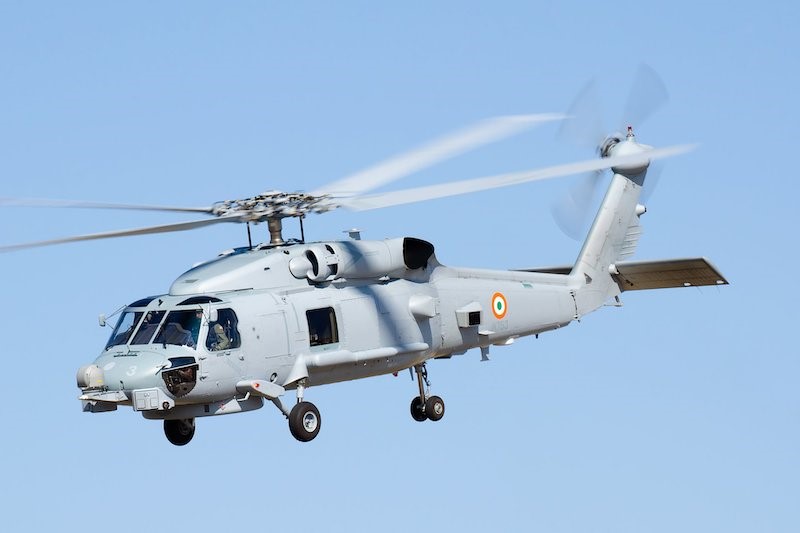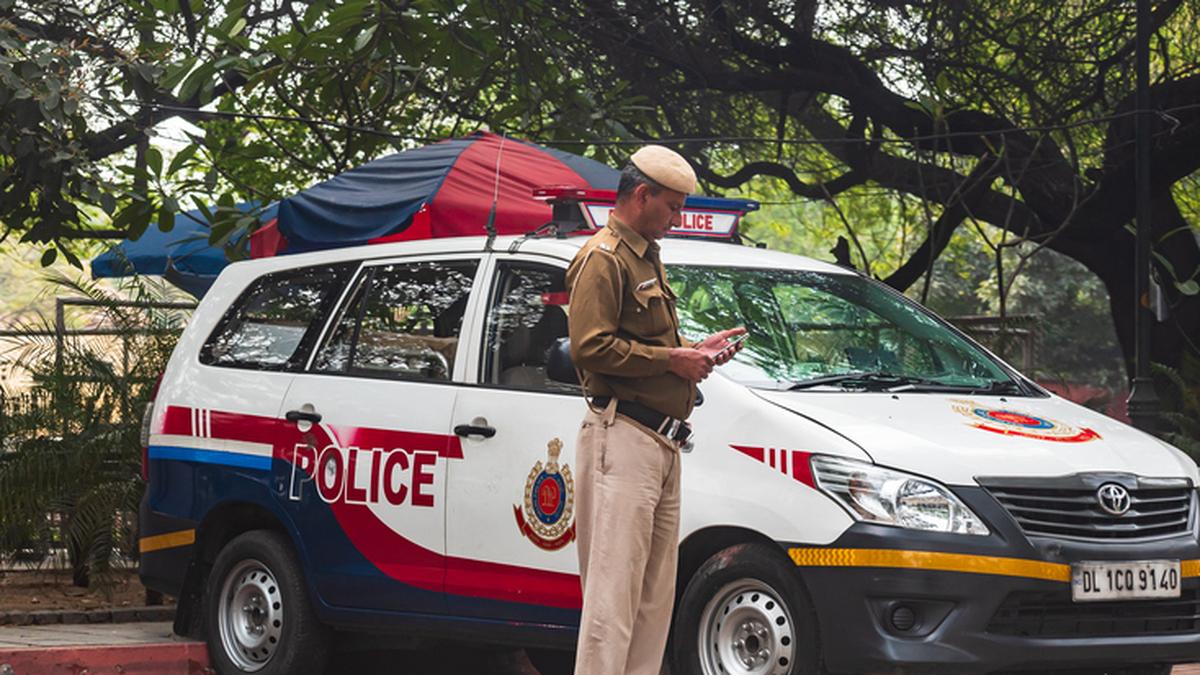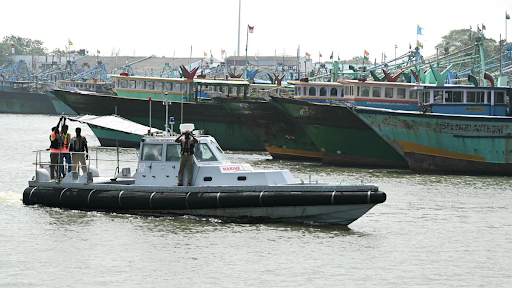Description

Disclaimer: Copyright infringement not intended.
Context
- Indian Navy has received the sixth MH-60R “Romeo” helicopter from Lockheed Martin.
- The company expects to complete the delivery of all the MH-60R choppers that India ordered by 2025.
Details
Procurement and Specifications
- Acquisition and Cost: India signed a contract to acquire 24 MH-60R helicopters from the United States for $2.6 billion. The deal includes India-specific modifications and weaponry, such as Hellfire air-to-surface missiles and Mark 54 anti-submarine torpedoes.
- Operational Range and Capabilities:
- The MH-60R Seahawk is renowned for its multi-role capabilities, ranging from anti-submarine warfare (ASW) to maritime surveillance, anti-smuggling, anti-piracy, and search-and-rescue missions.
- Equipped with advanced sensors, systems, and weapons, the helicopter provides a comprehensive and versatile platform for various naval operations.
Deployment and Operational Significance
- Aircraft Carrier Operations:
- These helicopters are intended to be deployed on India's aircraft carrier INS Vikramaditya, significantly enhancing its aerial capabilities.
- Successful landings of MH-60R helicopters on indigenously built aircraft carrier INS Vikrant and destroyer INS Kolkata demonstrate their compatibility and readiness for carrier-based operations.
- Strategic Maritime Security:
- The induction of MH-60R helicopters enhances India's maritime security posture by significantly boosting the Navy's anti-submarine and anti-surface warfare capabilities.
- The helicopters play a pivotal role in patrolling critical maritime zones, safeguarding territorial waters, and countering maritime threats.
- Versatility and Operational Flexibility:
- The MH-60R's adaptability for various missions ensures operational flexibility, making it an asset for combating diverse maritime challenges, including piracy, smuggling, and search-and-rescue operations.

Indigenous Integration and Future Plans
- India-Specific Modifications:
- The helicopters are undergoing India-specific modifications, likely tailored to suit the Indian Navy's operational requirements and maritime environment.
- Strategic Partnership with the United States:
- The procurement underscores the strategic partnership between India and the United States in defense cooperation, providing India with access to advanced military technology and equipment.
About the helicopter
- The MH-60R Seahawk helicopter, commonly known as the "Romeo," is a versatile and advanced maritime helicopter primarily operated by the United States Navy (USN).
- It serves as a multi-mission platform designed for anti-submarine warfare (ASW), anti-surface warfare (ASuW), search and rescue (SAR), and intelligence, surveillance, and reconnaissance (ISR) missions.
Design and Capabilities:
- Variant of Sikorsky's Seahawk Helicopter: The MH-60R is derived from the Sikorsky S-70B Seahawk and is built by Sikorsky Aircraft Corporation, now a part of Lockheed Martin.
- Advanced Sensors and Systems:
- The helicopter is equipped with state-of-the-art sensors and systems, including the AN/APY-9 radar, sonobuoys, acoustic sensors, electronic support measures (ESM), and radar warning receiver (RWR), enabling comprehensive surveillance and threat detection capabilities.
- Weapons and Armament:
- It carries a range of advanced weapons, such as Hellfire missiles, Mark 54 torpedoes, and precision-guided rockets, making it effective in both anti-submarine and anti-surface warfare operations.
- Multi-Mission Capabilities:
- The MH-60R's versatility allows it to conduct various missions, including anti-submarine warfare, anti-surface warfare, search and rescue, medical evacuation, and maritime surveillance.
Operational Features:
- Enhanced Maritime Surveillance:
- Its advanced sensor suite allows for effective monitoring of surface vessels and submarines, detecting and tracking potential threats in maritime environments.
- Anti-Submarine Warfare (ASW):
- Equipped with sophisticated sonar systems, it can detect and engage submarines using torpedoes and depth charges.
- Anti-Surface Warfare (ASuW):
- Capable of engaging and neutralizing surface threats with precision-guided missiles and rockets.
- Search and Rescue (SAR):
- Its capacity for medical evacuation and SAR operations makes it an asset in saving lives during maritime emergencies.
International Deployment:
- International Operators:
- Apart from the US Navy, several other countries operate or have ordered the MH-60R for their naval fleets, including Australia, Denmark, Saudi Arabia, India, and others.
- Modernization and Upgrades:
- Continuous upgrades and modernization programs ensure that the MH-60R remains at the forefront of maritime helicopter technology, incorporating new sensors, weapons, and systems.
.jpg)
Conclusion
The induction of MH-60R Seahawk helicopters represents a significant leap in India's maritime capabilities, particularly in anti-submarine warfare and multi-role naval operations. Their deployment on aircraft carriers and other naval assets reinforces India's commitment to enhancing maritime security and signifies a vital step towards bolstering its naval force in the Indian Ocean Region.
|
PRACTICE QUESTION
Q. Consider the following statements about the MH-60R Seahawk helicopters recently acquired by the Indian Navy:
1.The Indian Navy received MH-60R Seahawk helicopters to enhance maritime surveillance and anti-submarine warfare capabilities.
2.The acquisition of MH-60R helicopters by India includes India-specific modifications and weaponry, such as Hellfire air-to-surface missiles and Mark 54 anti-submarine torpedoes.
3.The MH-60R Seahawk helicopters have successfully conducted landings on indigenously built aircraft carriers, demonstrating compatibility for carrier-based operations.
Which of the above statements is/are correct?
A) 1 only
B) 2 only
C) 3 only
D) 1, 2 and 3
Answer: D)
|










